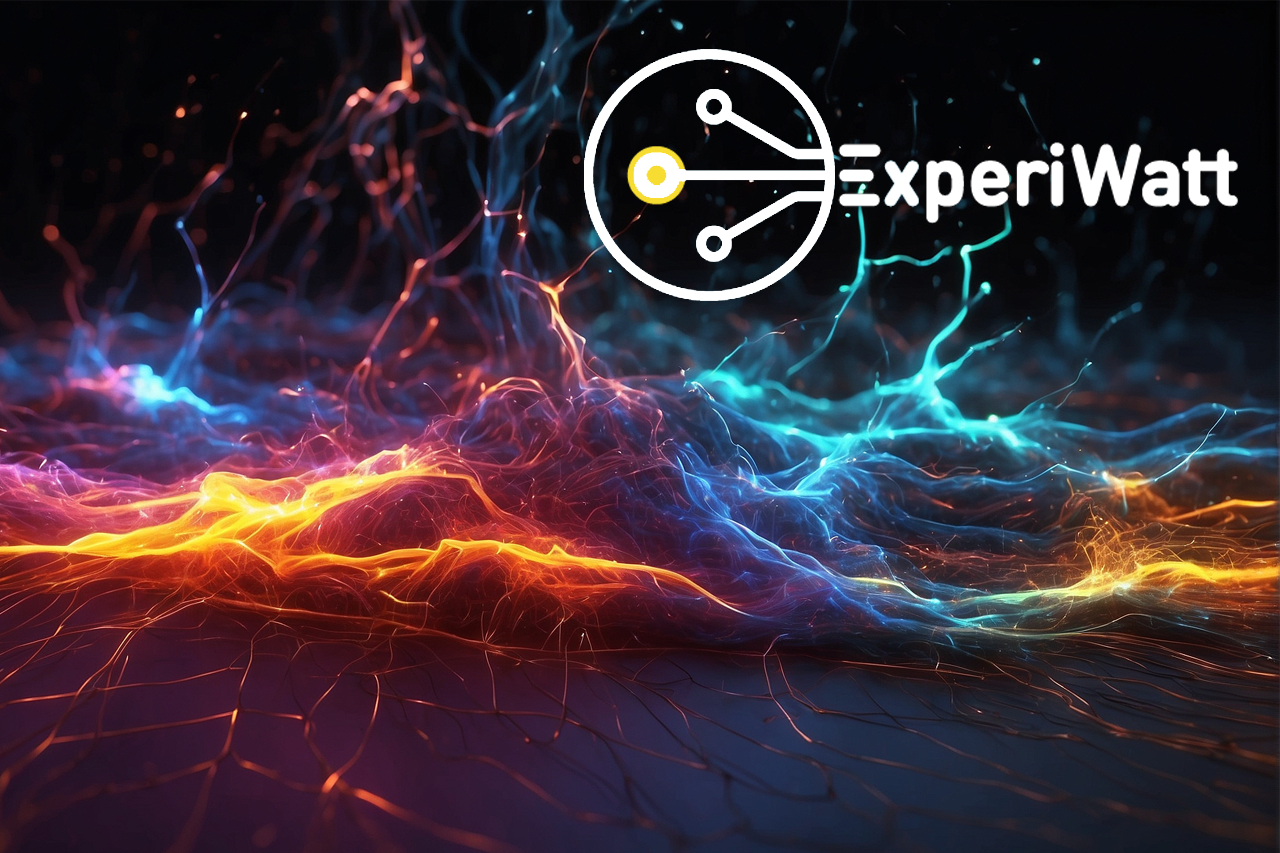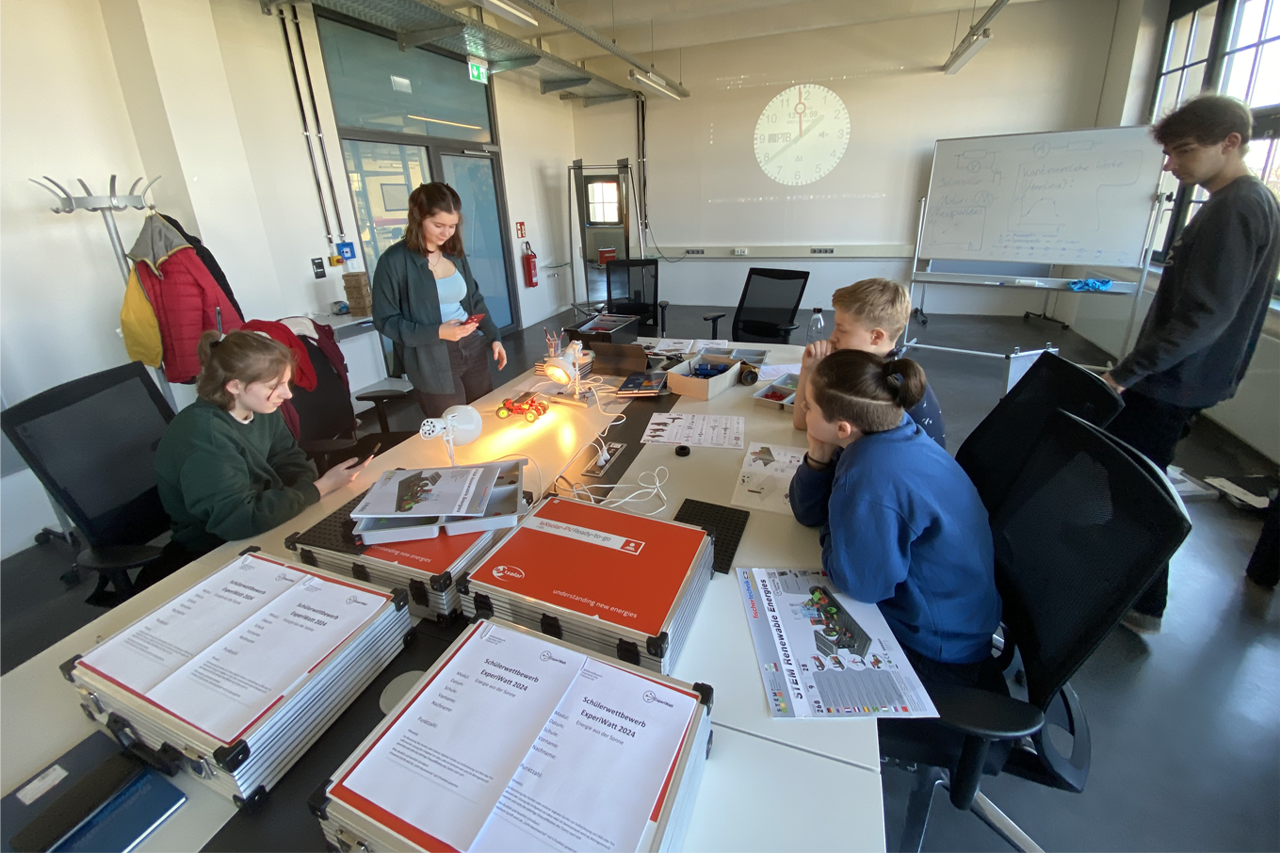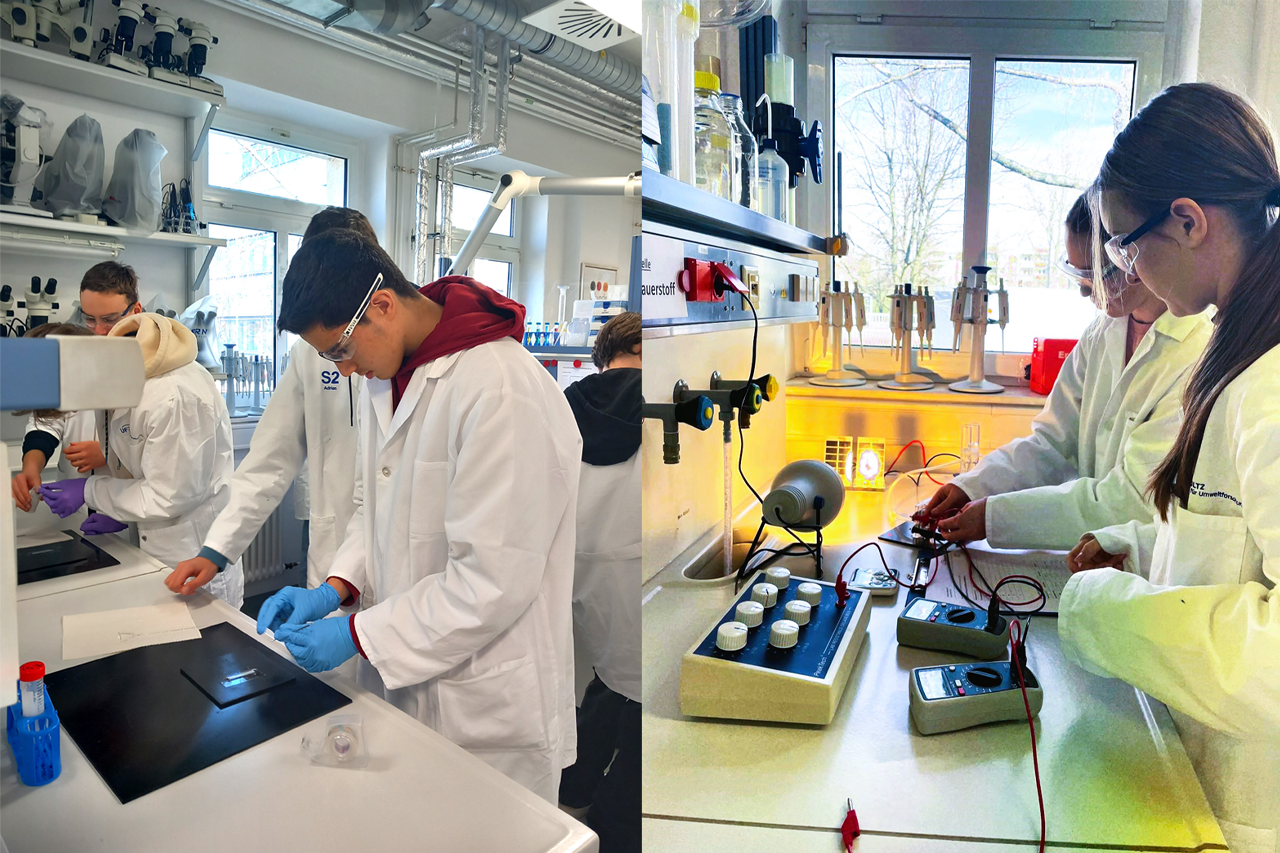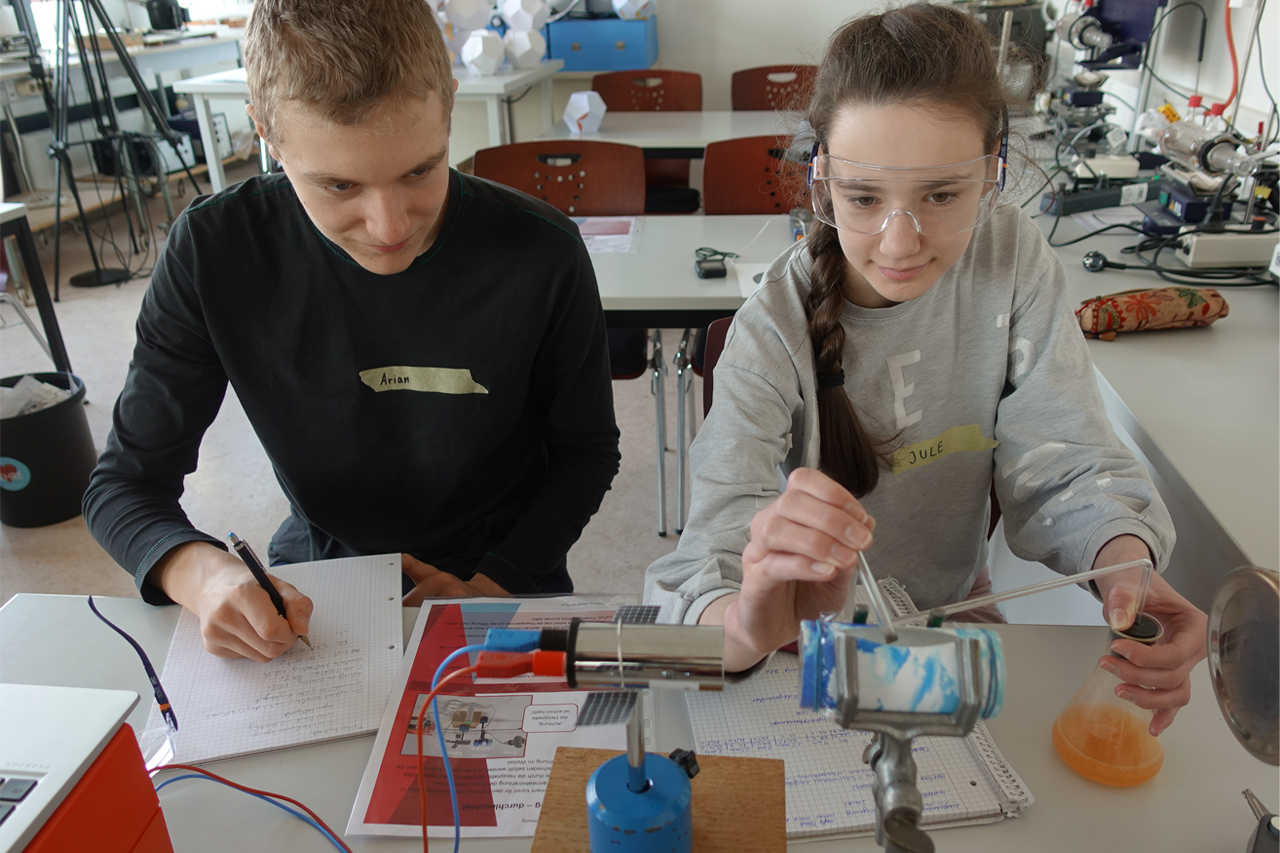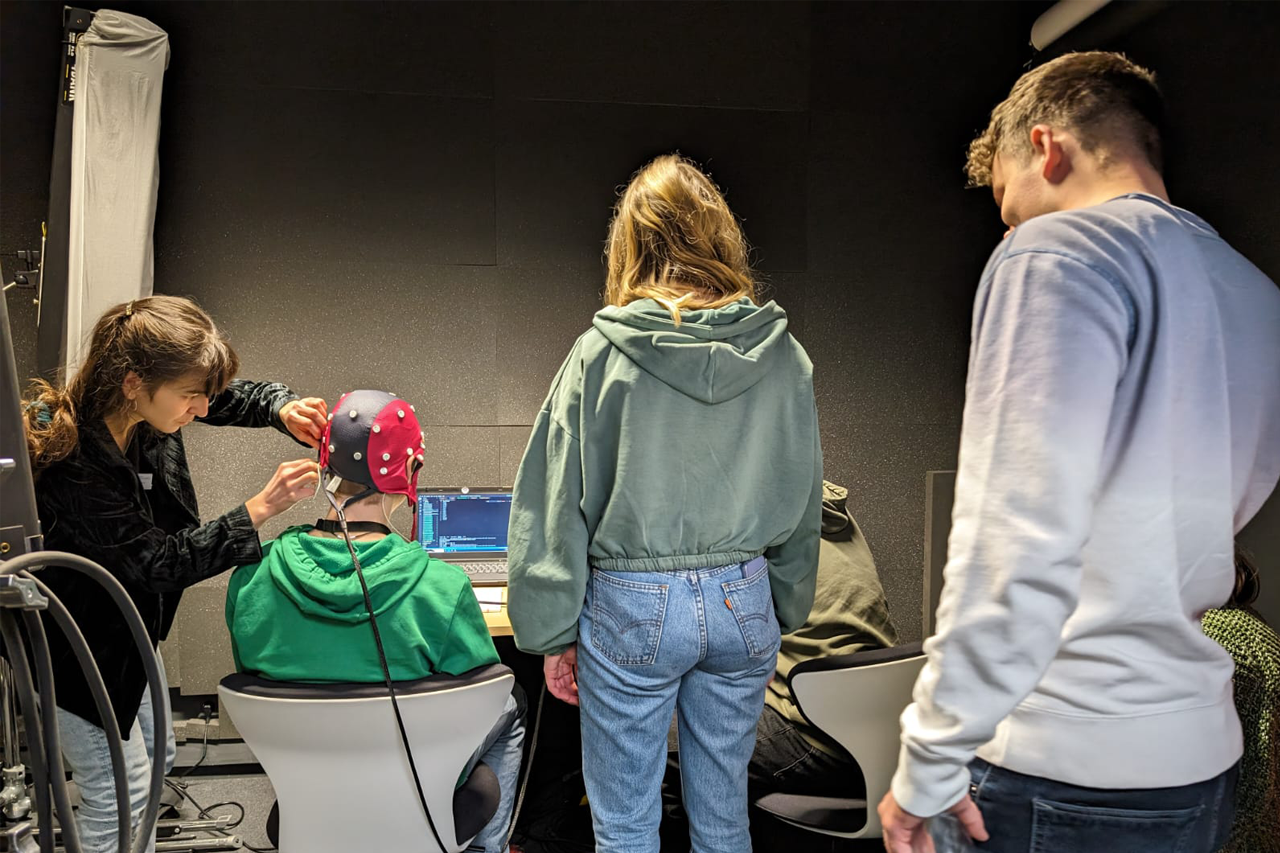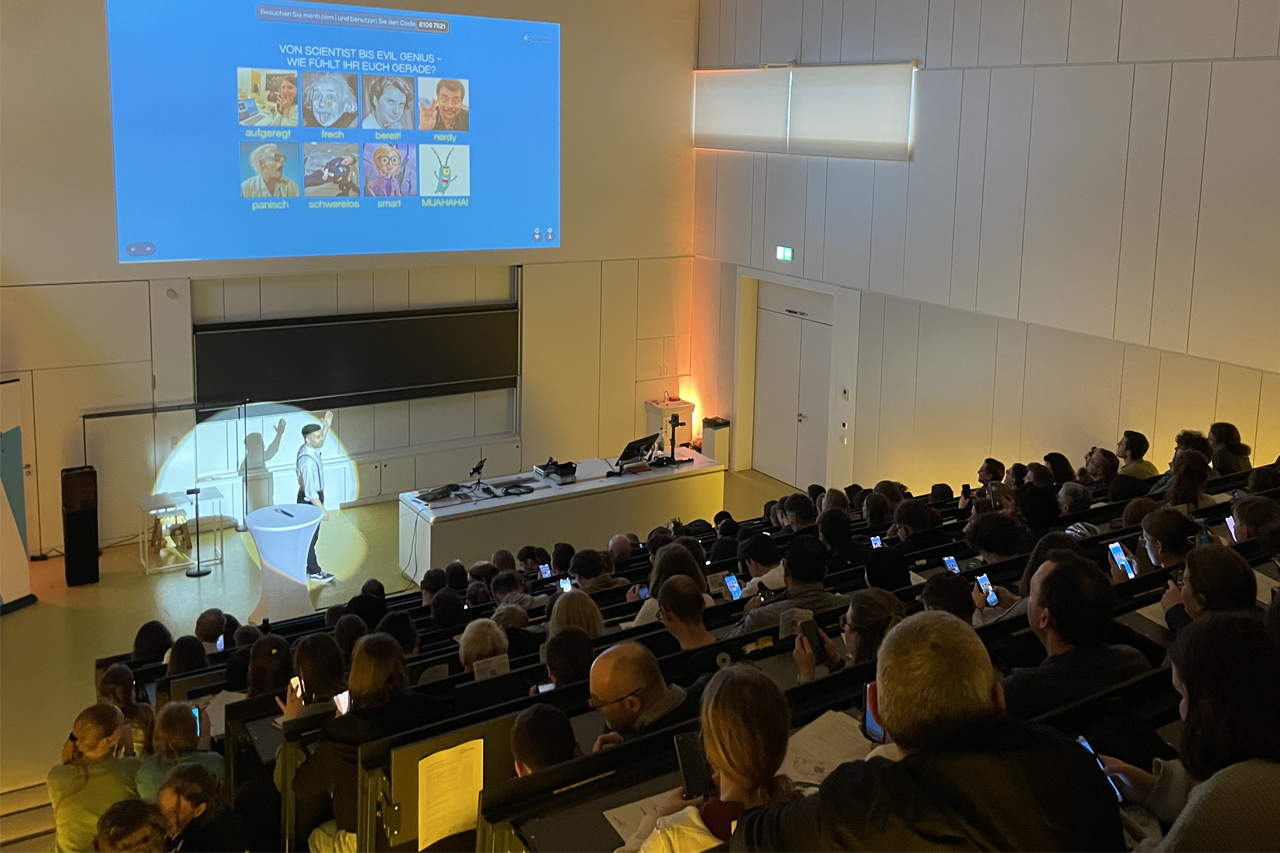In March, almost 200 schoolchildren once again carried out research and experiments
Energy can be generated in a climate-neutral way using wind, sun or muscle power, flows not only through power lines but also through our brains and even cow dung can be converted into energy.
In the annual STEM competition ExperiWatt, pupils in year 9 spend two weeks tackling scientific questions and experiments in the exciting field of energy.
From 4 to 15 March 2024 , this year's STEM teams once again competed against each other, calculating how energy is generated using muscle power or solar cells, bringing water to the boil by cycling or taking a closer look at energy flows in the brain.
The crowning glory of the science competition for all participants was the fun, exciting and scientific award ceremony with Jack Popthe CIRCUS of SCIENCE entertainer, which took place on 27 March 2024 in the Nieper Building at HTWK Leipzig.
MINT COMPETITION
Every year, pupils in the 9th grade of a secondary school or grammar school in Leipzig and the surrounding area can register for the ExperiWatt competition. In recent years, participants have been sent in teams of four to four different modules at the various knowledge centres in Leipzig. This year, the STEM competition was able to accept many more applicants, as two additional modules and locations were added.
MODULES & LOCATIONS
HTWK Leipzig | FitForFuture
Muscle power, solar energy or coal power? Which forms of electrical energy generation do we want for our future?
A total of six different experiments on energy generation awaited the teams in the laboratory of the Faculty of Engineering at HTWK Leipzig. The teams learnt about different forms of energy in practice at the stations and had to find answers to questions such as:
How can pumped-storage power plants be rethought as energy storage systems?
Why do LEDs consume less energy than light bulbs?
Why don't you fill the kettle up to the "max" mark?
How much sweat is in a cup of tea? Or: How fit are you?
In the first experiment, the pupils were allowed to generate energy while cycling on the bicycle ergometer, analyse the data and then carry out calculations, for example on heat energy. The "hub dynamo" experiment involved determining the differences in performance between LEDs and light bulbs.
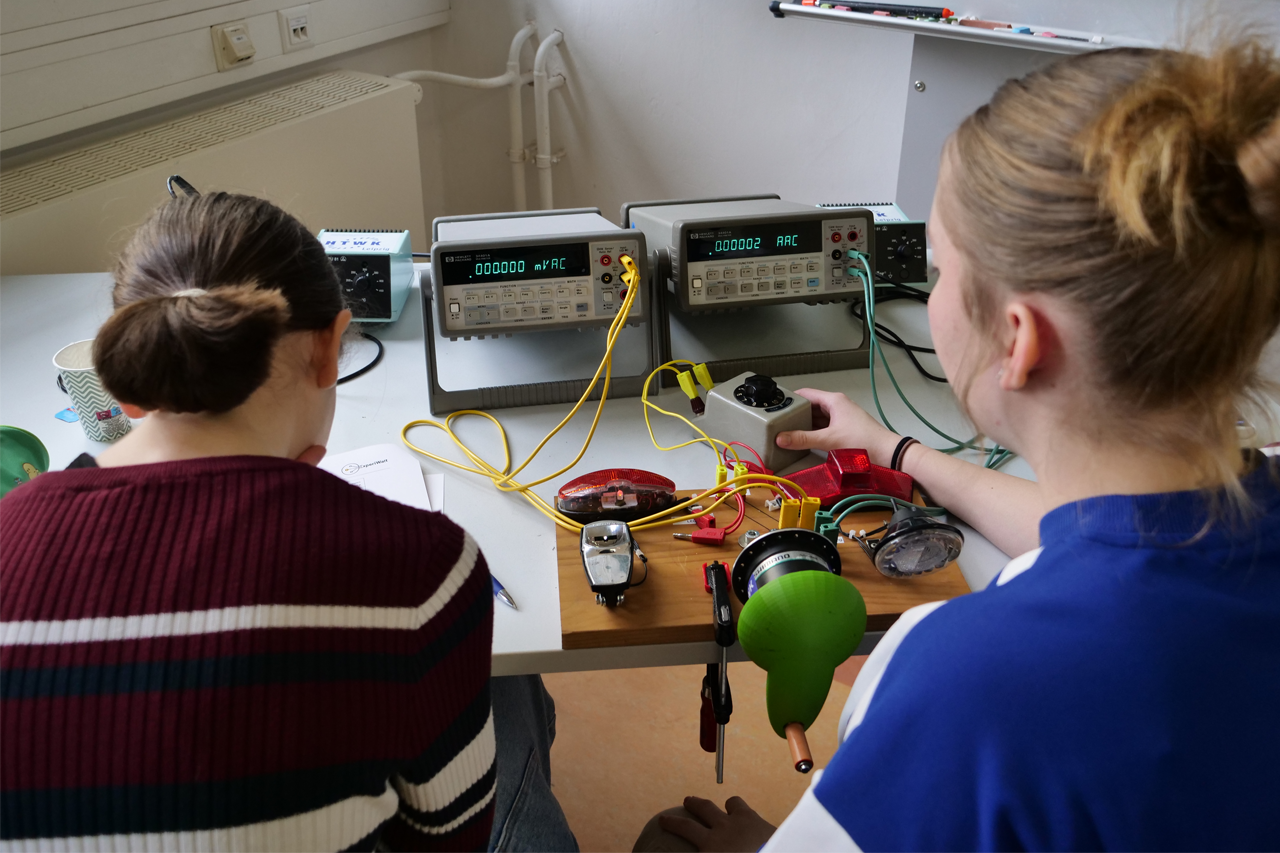
VDI GarGe Leipzig | Solar energy
Energy from the sun - it is the basis of all life, providing us with light and heat. But how can we utilise the sun technically and what happens when it "doesn't shine"?
At the VDI GaraGe, the pupils learnt about the structure and function of silicon solar cells. They then investigated how shading affects the performance of solar cells, what happens when solar cells are interconnected in different ways and the efficiency of different energy conversion steps. They also simulated an island system with a solar installation and investigated capacitors as a storage option for electricity from solar cells.
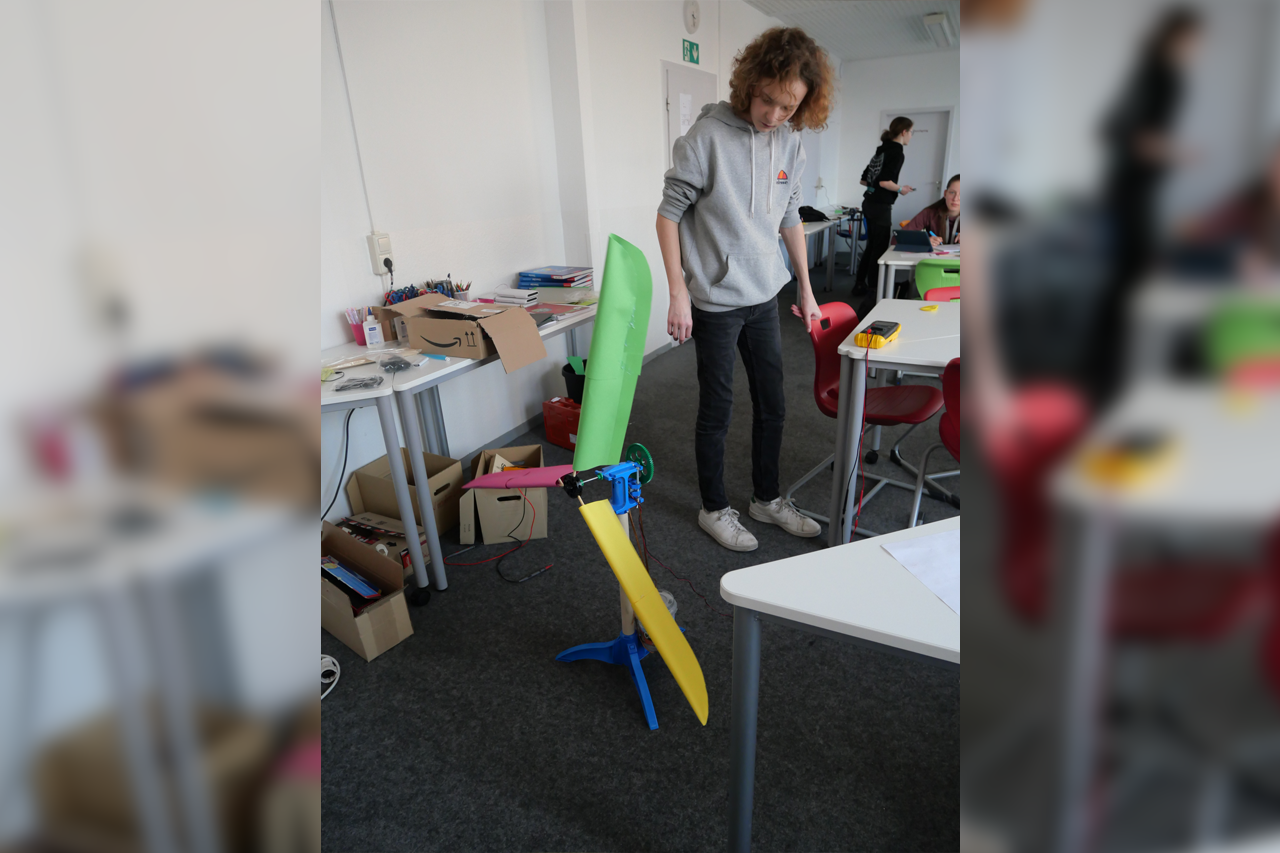
(Kopie 5)
INSPIRATA Leipzig | Wind energy
The wind, the wind, the heavenly child... - How much energy is in it and how can we use it sensibly? Find out!
How can we utilise the energy of the wind efficiently? And what happens when there's a lull? Questions like these had to be answered at the INSPIRATA Leipzig module. The knowledge challenge on the topic of wind energy was only part of the challenges that the teams had to face. The participants also learnt about different types of rotors and their different shapes, had to deal with technical jargon and statistics relevant to the topic and were able to experience the topic of wind energy for themselves through their own experiments.
UFZ School Lab | The fuel cell
Fuel cells in cars? What will drive us in the future if we want to remain CO2-neutral mobile?
At the UFZ student laboratory, the teams were given an introduction to how fuel cells work, how to handle them and an insight into their internal structure at the start of the module. They learnt what the phenomenon of the "lemon battery" is all about and what water splitting with a galvanic cell actually is.
The following questions were answered theoretically and worked out practically in the module: Will fuel cell technology be the solution to this question? What "burns" in a fuel cell? Which fuels can I use to operate these energy converters? What does a fuel cell look like on the inside?
In the module, the teams also measured the performance of various fuel cells and completely dismantled and reassembled a fuel cell.
University of Leipzig | Combustible ice
How can we store the greenhouse gas methane from cow farts and use it as an energy source?
Combustible ice and cow farts? What do you think this has to do with energy? This module shed light on the secrets of burning ice and showed the connection to cow poop. Participants learnt about the role methane plays in environmental protection and in the development of future energy storage systems. Through exciting experiments, the participants discovered the effect of cow poop on our environment, how flammable ice can be used as an energy store and designed an innovative cowshed of the future.
Max Planck Institute for Human Cognitive & Brain SciencesNeuroscience | On the trail of efficiency and performance of the human brain
The module provided an insight into brain research and the energy consumption of the human brain. The teams learned what electroencephalography (EEG) is and how it can be used to measure the brain's energy consumption in different situations (relaxed dreaming or solving a difficult maths problem). In the practical part, the participants were able to carry out their own EEG experiments and learnt how to use a computer programme to research their brain activity.
WHAT DID YOU LEARN?
Mrs Schulisch, a teacher at Schiller-Gymnasium, replied to the question of what advantages ExperiWatt offers compared to school and whether everyone enjoyed it by saying:
"There is special equipment that schools don't have. In addition, the supervisors are much more familiar with the subject matter and can explain much more about the specific subject areas. [...] All the pupils were very enthusiastic about ExperiWatt. They experienced and learnt a lot of new things."
For Shania, a pupil at BIP Gymnasium and ExperiWatt 2024 participant, the STEM competition is characterised by the following aspects in particular compared to other competitions:
"I have often taken part in Olympiads, but ExperiWatt is simply different. [...] At Olympiads, you simply call up the knowledge you have learnt, there is no application and it is quite exhausting because the competitions sometimes last 6 hours. [...] At ExperiWatt, the theory is explained in a really interesting way and you can apply the knowledge directly in cool experiments. It's not as boring as the Olympics. [...] ExperiWatt has made science much more interesting for me. [...] Physics Olympiads don't arouse any deeper interest and don't help pupils to find their bearings. The experiments at ExperiWatt make the subject area much more exciting and you get a good idea of what is possible."
THE WINNING TEAMS
Grammar schools
1st place | Geschwister Scholl Gymnasium Taucha
2nd place | Gymnasium Brandis
3rd place | Neue Nikolaischule
Secondary schools
1st place | OS am Weißeplatz
2nd place | Lene-Voigt-Schule
3rd place | 56th secondary school
BACKSTORY | ExperiWatt
Since 2020, the Faculty of Engineering at HTWK Leipzig, INSPIRATA - Zentrum für mathematisch-naturwissenschaftliche Bildung e.V., UFZ - Helmholtz-Zentrum für Umweltforschung GmbH and VDI GaraGe gemeinnützige GmbH have been offering the MINT competition ExperiWatt . It is aimed at pupils in year 9 from secondary schools and grammar schools in Leipzig and the surrounding area. ExperiWatt focusses on the urge to research and the exploration of STEM topics relating to energy. ExperiWatt is carried out by the four cooperation partners in terms of content and organisation.
In 2024, the Max Planck Institute for Human Cognitive and Brain Sciences Leipzig and the Institute for Didactics of Physics at Leipzig University were added as additional locations.
The competition is financially supported by the City of Leipzig and the L-Group as well as sponsorship and support from Techniker Krankenkasse and the company ANT.
Originally, the STEM competition entitled experiNat was financed and organised by Leipziger Stadtwerke (now the L-Group) from 2006 to 2019. After the 13th edition in 2019, the L-Group said goodbye to the format in order to "focus on other measures" in future. The four module partners of the former experiNat competition decided to continue the now established and popular STEM competition with slightly different framework conditions under the new title ExperiWatt.
